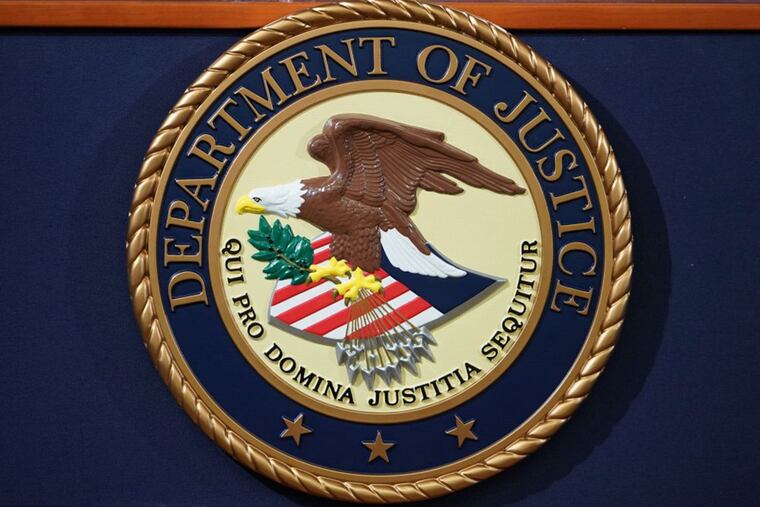FBI, Philly prosecutors investigating N.J. corporate tax breaks, sources say
The controversy over the incentives has dominated headlines since the spring, after Gov. Phil Murphy created a task force to investigate the program, and the state’s top prosecutor opened his own review. The inquiry by agents and prosecutors in Philadelphia would appear to open a new front.

Federal authorities in Philadelphia have launched an investigation in connection with New Jersey’s multibillion-dollar corporate tax-incentive program, according to three sources with knowledge of the probe.
FBI agents have interviewed potential witnesses over the last month, sources said. Among their areas of interest has been the development boom in Camden, which has been fueled by $1.6 billion in tax breaks that the state’s Economic Development Authority awarded to companies there since 2013, according to one person briefed on the matter. Each of the sources spoke on condition of anonymity.
The controversy has dominated headlines in New Jersey politics since the spring, after Gov. Phil Murphy created a task force to investigate the tax-credit program, and the state’s top prosecutor opened his own review. The inquiry by federal authorities in Philadelphia represents a new front.
The involvement of the U.S. Attorney’s Office in Philadelphia appears to be in its early stages, and its scope unclear. Spokespeople for U.S. Attorney William McSwain and the FBI said they would not confirm or deny the existence of investigations that have not been made public.
New Jersey Attorney General Gurbir Grewal opened his review of the program earlier this year, after the state’s comptroller identified “significant” oversight problems within the Economic Development Authority, the agency tasked with attracting and retaining businesses in New Jersey. In May, Grewal issued a grand jury subpoena to the authority, signaling that his inquiry had become a criminal investigation. The subpoena sought records pertaining to companies that applied for the tax incentives.
Much of the probe by Grewal’s office has taken place behind closed doors. The task force commissioned by Murphy has held public hearings and issued one report on preliminary findings; critics have attacked its investigation as politically motivated. The Democratic governor, who took office in 2018, has assailed the tax breaks as a giveaway for special interests.
The program was revamped in 2013 by then-Gov. Chris Christie, a Republican, and the Democratic-controlled state Legislature. Among their goals was to spur economic growth in South Jersey and especially Camden, long one of the nation’s poorest and most violent cities.
Since then, the breaks have helped fuel the city’s development boom, which has helped to transform Camden’s waterfront and sparked what local officials say is a renaissance in the city.
The task force, led by a Rutgers law professor and former federal prosecutors, has scrutinized companies with ties to South Jersey Democratic power broker George E. Norcross III, who is executive chairman of the insurance brokerage Conner Strong & Buckelew and chair of Cooper Health System’s board of trustees.
Conner Strong, which had dual headquarters in Marlton and Philadelphia, and two of its business partners were awarded $245 million in tax credits by the Economic Development Authority in 2017 to build an office tower in Camden and bring jobs there. The tax breaks are provided over a 10-year period, as long as the recipient companies meet their investment pledges.
In its June report, the task force wrote that companies with ties to Norcross — including Conner Strong, Cooper, the trucking and logistics firm NFI, and housing developer the Michaels Organization — may have misled the EDA by indicating that if they did not receive tax credits, they would move jobs to alternative locations in Philadelphia.
The companies have denied the task force’s claims, and in May, they sued Murphy, alleging the panel had been created unlawfully and was improperly targeting private citizens. Norcross is a plaintiff in the lawsuit. A New Jersey Superior Court judge dismissed the lawsuit in July, and Norcross is appealing it.
That June task force report also said that it had identified more than $500 million in tax breaks awarded by the EDA statewide that could be rescinded, either because companies had failed to comply with program requirements or had submitted inaccurate information on their applications.
This isn’t the first time federal prosecutors have taken an interest in New Jersey’s tax-credit programs. Last year, prosecutors in the U.S. Attorney’s Office in Newark acknowledged in a letter to Norcross’ lawyer that they had conducted an inquiry “pertaining to the procurement of tax credits.”
They did not elaborate on the scope of their investigation or the evidence they had reviewed. But they wrote that they had “concluded that no further action” was warranted and closed the inquiry.